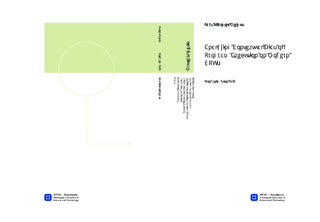Analyzing Contextual Bias of Program Execution on Modern CPUs
Master thesis
Permanent lenke
http://hdl.handle.net/11250/253371Utgivelsesdato
2013Metadata
Vis full innførselSamlinger
Sammendrag
Seemingly innocuous properties of the environment, such as the contents of system environment variables, or different link orders, can impact the performance of computer programs. Variations in external properties like these can bias programs towards certain configurations. These effects have been shown to be a significant issue in performance analysis, but unpredictable and difficult to deal with.Abstract This thesis focuses on the underlying reasons for bias effects that can be experienced for example by changing environment variables, or using different link orders. Both of these factors can lead to differences in memory layout of either code or data, which in turn interacts with various hardware mechanisms. Through experimentation and careful measurements using performance counters, we identify several potential sources of bias on the Intel Core i7 ?Ivy Bridge? architecture. Limitations imposed by the Loop Stream Detector is revealed, along with effects from 4K address aliasing. We show that bias is in fact not completely unpredictable, and discuss measures for avoiding it.Abstract Our case studies show that even highly optimized Fourier transform and linear algebra libraries are prone to bias. We find that stack alignment significantly affects the performance of FFTW, and that in some cases more than 30 % performance gain can be made by avoiding address aliasing in ATLAS' matrix-vector multiplication. Our results show that an awareness of program layout in memory is important, especially for users and developers of performance critical software.
